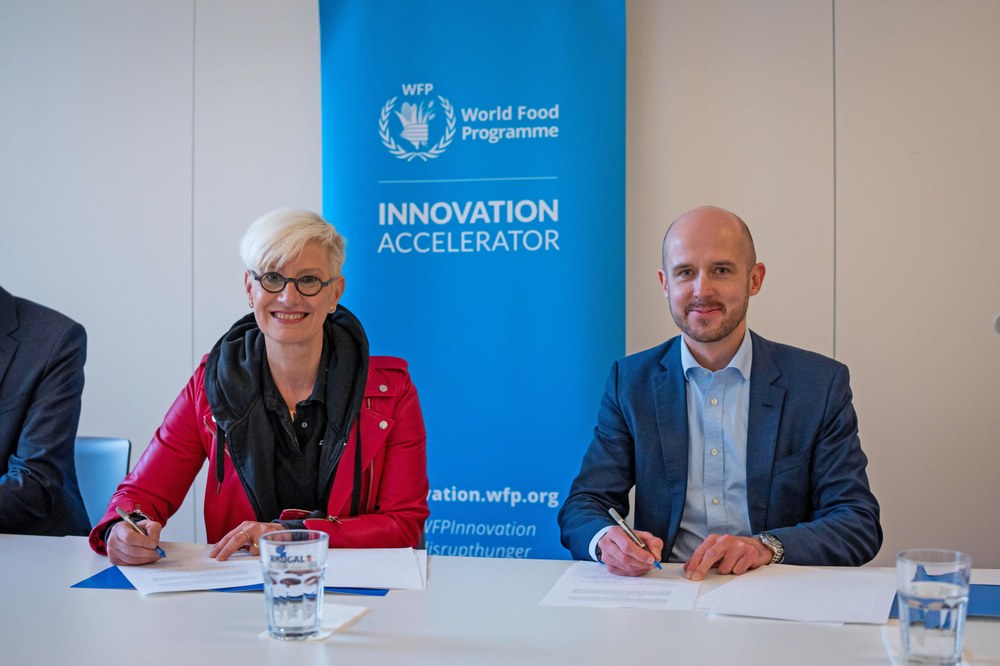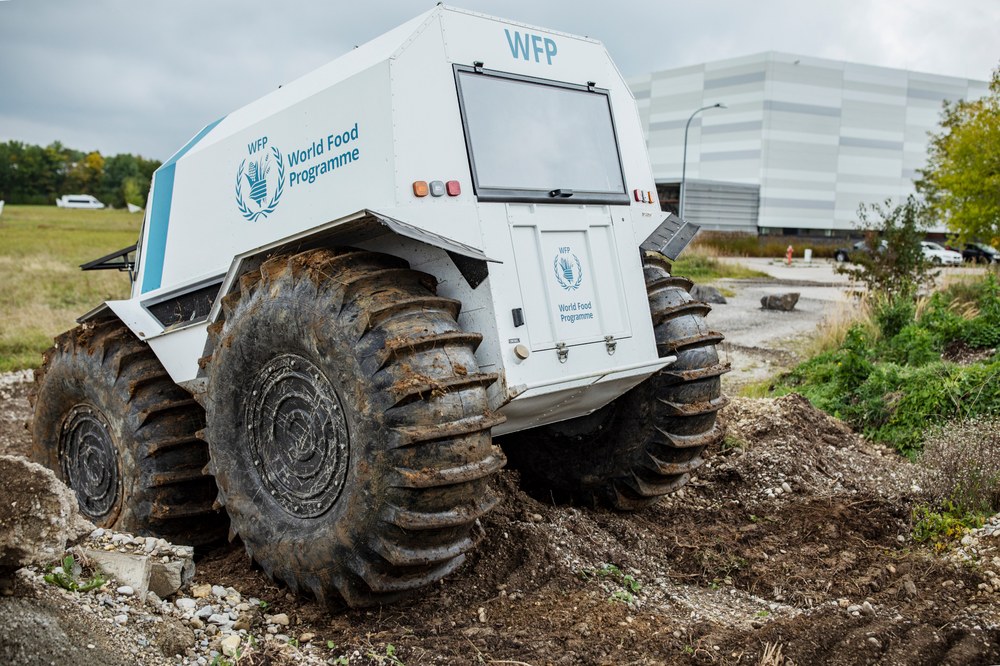Cutting-edge tech to fight hunger

WFP/Benjamin Härer


- The United Nations World Food Programme (WFP) and DLR have extended their cooperation agreement until 2029.
- This enduring partnership is dedicated to advancing critical technologies for humanitarian aid and their practical implementation.
- The formal five-year renewal agreement took place at the WFP 'Innovation Accelerator' Pitch Event, held at the Munich Security Conference.
- Focus: Humanitarian aid, space, aeronautics, security
Humanitarian aid is urgently required as 333 million people face acute hunger due to conflict, natural disasters, climate change and high food prices. The German Aerospace Center (Deutsches Zentrum für Luft- und Raumfahrt; DLR) has been providing technological support in the fight against hunger for about 20 years, in particular alongside the United Nations World Food Programme (WFP), the world's largest humanitarian organisation. This formal alliance was recently renewed as Anke Kaysser-Pyzalla, Chair of the DLR Executive Board, and Bernhard Kowatsch, Head of the WFP Innovation Accelerator, signed a cooperation agreement in Munich for an additional five years. The aim is to further develop DLR’s cutting-edge technologies for humanitarian aid and put them to practical use.
"Since the start of our collaboration in 2019, we have worked intensively on the topics of fleet management and autonomous vehicles, drones, geoinformation, preventing and forecasting hunger. The focus has always been on the mutual transfer of knowledge and technology," emphasised Anke Kaysser-Pyzalla during a meeting between the WFP and DLR in Munich, adding: "One of the highlights of the collaboration is the AHEAD (Autonomous Humanitarian Emergency Aid Devices) project. This initiative involves the further development of a vehicle that can be remotely controlled and uses spaceborne and airborne Earth observation technologies to deliver humanitarian aid to areas in need. We are pleased to confirm our cooperation today with the renewal of the WFP-DLR agreement and look forward to its continued success in the future."
Bernhard Kowatsch highlights: "The continuation of our partnership with DLR is of crucial importance to continue developing and testing innovative solutions in the fight against global hunger and to deploy them where they are most urgently needed. We would like to thank DLR for the successful collaboration to date and are determined to continue this success story together in the coming years."
Predicting famines, providing crisis information and closing supply gaps
The signing ceremony took place on 16 February 2024 as part of the WFP Innovation Accelerator's Pitch Event, held as a side event of the Munich Security Conference and attended by 200 tech experts and distinguished guests from government and industry. The event was opened in the afternoon by Cindy McCain, Executive Director of the WFP. At the innovation exhibition that followed, DLR presented the main activities of its 'Technologies for Humanitarian Aid' initiative. This includes the FamPred project, a joint project with the WFP to develop AI-based methods for predicting trends in food security and applying them to vulnerable regions worldwide. Initial studies show that it is possible to make good predictions for a period of 60 days, which can be extended further with an improved database and optimised AI methods. To this end, FamPred is also collaborating with Google.
With its AI-based damage analysis, the Data4Human project supports the provision of timely and accurate satellite and drone information on affected areas following a disaster. Over a short period, rescue teams can quickly obtain updated damage maps to identify isolated regions, estimate the number of affected people and plan the delivery of relief supplies.
Using SHERP all-terrain vehicles, the WFP has successfully provided essential food aid to numerous people in need worldwide. Nonetheless, transport routes frequently pose risks for drivers. In the AHEAD project, efforts are underway to render SHERP vehicles semi-autonomous, able to be remotely controlled from safe areas to address the supply gap over the difficult-to-access regions in urgent need of relief.
DLR showcased the latest advancements in the AHEAD project during the inauguration of the new WFP Innovation Accelerator in Munich. Cindy McCain, accompanied by esteemed political dignitaries, also welcomed Anke Pagels-Kerp, DLR Divisional Board Member for Space, to the event. The WFP gatherings provided a platform for national and international stakeholders to witness DLR's technological proficiency in humanitarian aid first-hand.
